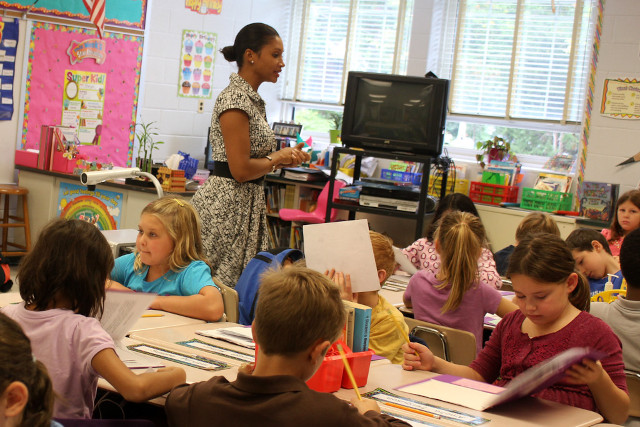
[dropcap]T[/dropcap]eachers, SNAs and the Gardaí will continue to lobby the government in their fight for frontline vaccination priority.
The new framework for the vaccine rollout has left many people across the state infuriated. The vaccine will be given on an age-based system, once the most vulnerable people in society have received theirs.
The new system has received harsh criticism from teachers, special needs assistants and members of the Gardaí. These groups are on the frontline of Irish society everyday providing Irish society with education and protection.
Irish teachers and special needs assistants returned to classrooms in February while infection levels were among the highest in Europe. Many feel as though the government have little regard for their wellbeing.
It was initially promised that teachers and SNA’s would be among the first 30% of the population to be vaccinated. It is hard to say when many young staff members will now receive their vaccine.
The teachers unions’ have made it clear that they do not dispute the fact that elderly people are more at risk. Their concerns relate to the risk of high exposure levels within classroom settings.
In classrooms of with up to 30 unmasked children from 30 different families, they feel as though they could be at high risk of contracting the virus.
A primary school teacher, Noreen Ní Cathain said, “I understand that teachers always seem to be complaining and making the headlines but I do think that the government should rethink their decision to have teachers moved down the vaccine rollout list.”
Noreen stated that as the government consistently mention their priority is to keep the schools open. “I am in a classroom everyday with 30 6-year-olds, it is impossible to maintain social distancing when putting on their jackets and cleaning their noses,” she said.
“With the threat of a fourth wave of the virus, it would make sense for teachers to be prioritised in the vaccination rollout,” she concluded.
Martin Marjoram, the president of TUI spoke on the issue saying that the commitment to vaccinating educators was reserved “abruptly and disrespectfully”. He stated, “we must insist that commitments made on issues as sensitive as this be honoured.”
Minister for Education, Norma Foley has defended the government decision on the scheduled rollout of the vaccine. She spoke at the Irish National Teachers’ Organisation congress and defended that the decision was based on medical and scientific evidence.
The General Secretary of the INTO retaliated to Minister Foley’s statement by saying that the government had disregarded teachers’ safety. She made the point that it was not a value judgement on any profession but instead the decision was based on medical science.
On the 7th of April, the three teachers’ unions, INTO, TUI and the Association of Secondary Teachers Ireland (ASTI), have proposed holding ballots for strike action if teachers are not prioritised for vaccination by the end of this 11 week term.
It is unlikely that industrial action will be taken by the end of this school year, it is proposed to take place in September.
Fórsa, the governing trade union for special needs assistants have called for prioritisation under the new scheduled vaccine rollout. Andy pike, Fórsa’s head of education stated that there is a concern among SNAs of contracting the virus and bringing it into the students in their classrooms.
The children who require SNAs are often within the high-risk, vulnerable category. As with any classroom, both the staff and the children are in high-risk exposure environments.
In a statement from Fórsa, Andy Pike said “SNAs did their bit to ensure that schools opened up from 11th February on the basis that, among other safeguards, they would be prioritised for vaccines.”
Earlier this month, public health experts had stated that all adults will have received their vaccine by September. This would prevent the need for industrial action.
The fact remains that vaccination rollouts have not been as successful as promised to date. At the beginning of this month, 13.76% of the population had received their first vaccination.
According to figures from the Department of Health, only 7% of the vulnerable category have received their first and second dose of the vaccine, 100 days into the vaccine rollout.
The Gardaí have also called on the government to be moved up the vaccine rollout schedule due to the high risk nature of their jobs. In doing their jobs, members of the Gardaí are forced to enter peoples home.
The group previously stated that they are unable to perform a “Covid checklist” at the door when called out to an emergency. Emergency cases are time sensitive.
Teachers and the Gardaí are calling for a twin-track vaccination approach. The twin-track approach means vaccinating high-risk frontline jobs at the same time as the current age-based vaccination programme.
At the beginning of the year, the twin-track approach proved to be successful in vaccinating health care workers along with elderly and high-risk people.
Teachers, SNAs and the Gardaí will continue to lobby the government in their fight for frontline vaccination priority.
Kathleen Keane
Image Credit: Creative Commons



